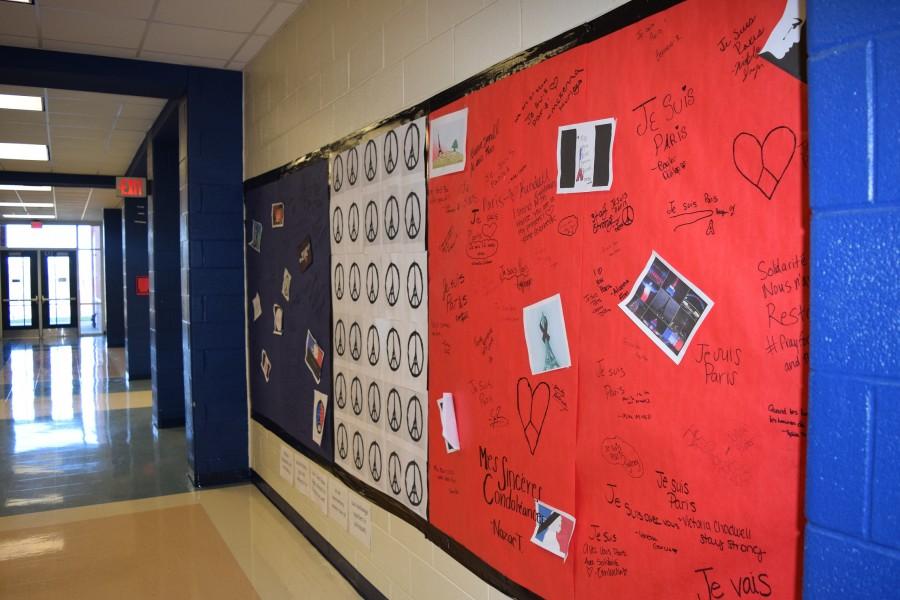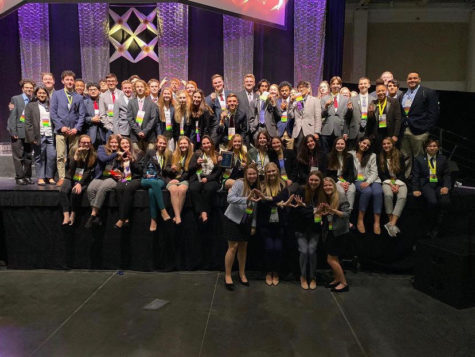The Condition of the Islamic State
On November 13th of this year, a still unclear number of terrorists launched six separate attacks on the city of Paris and its people, claiming the lives of 130, injuring hundreds more, and scarring countless. The attacks took place at six separate locations throughout downtown Paris and its suburb Saint-Dennis. Among places hit were the State de France—France’s national stadium, the Bataclan theatre, and numerous popular bars, hangouts, restaurants, and cafes.
The first of attacks occurred at the State de France. France’s national soccer team was hosting Germany’s national team in a friendly that evening that even the president attended. There were no shooters at this site as the attack was executed by three suicide bombers. Each of the assailants aimed to enter the stadium and detonate themselves once inside, but due to efforts from security guards, none of them ever made it this far. Fortunately, there were only four deaths that resulted from this attack, with three of them being of the bombers themselves. The seond assaults occurred at the two neighboring restaurants Le Carillon and Le Petit Cambodge. The attackers this time were two gunmen who drove off immediately after they stopped shooting. The death toll here was 15. At Café Bonne Biere and the Italian restaurant La Casa Nostra, one shooter shot and killed five more people. At the restaurant La Belle Équipe, two more gunman stripped the lives of 19. At Comptoir Voltiare cafe, a suicide bomber detonated his vest but managed to kill only himself. The final and most devasting of the attacks took place at the Bataclan theatre. There, three gunman armed with automatic weapons, hand grenades, and suicide vests opened fire on a crowd of 1,500 people gathered to see the American band rock Eagles of Death Metal, killing 89. After police arrived, the gunmen took hostages, but after the men reportedly continued to execute the hostages, police entered the premises. Two of the men ending up detonating their vests and the third was shot and killed. In short: one stadium, one concert hall, six bars, cafes, and restaurants (two of the locations consisted of two different restaurants), four bombers, at least eight shooters, 130 slain, and one world shocked.
After original speculation about who the acts of violence were carried out by, the radical extremist group ISIS eventually claimed responsibility. The group, whose acronym stands for the Islamic State of Iraq and Syria or, if referred to as ISIL: the Islamic State of Iraq and the Levant, has been widely considered a terrorist group for years. Before the attacks, the legitimacy of that statement could’ve argued; the Paris attacks in that the attacks marked the first time the group attacked an entirely civilian population they had no specific problem with. In other words, though they’ve committed numerous atrocities in the past, their prior ones have been in an area that they consider under their control and were done for a specific reason or against a specific group—be it being a nonfollower, a Christian, Yadizi, or Shia Muslim. These attacks were done to punish France or western democracy as a whole; they didn’t investigate the lives of 130 victims and then determine them guilty of some sort of crime, thus marking their official transition into being able reach the world on a global scale and being stereotypical “terrorists.”
Where the groups surpasses similar organizations is that they’re the first to actually establish an Islamic state, hence the name. Nevertheless, the group isn’t satisfied and believes it is not only their right, but their divine duty to unite each and every Muslim of the world under one caliphate (an Islamic dynasty or empire) and return Islam to what they consider its glory days. They believe their interpretations of the Quar’an and their religion afford them the permission to reach this goal by all means necessary, even if by violence.
The group was originally part of al-Qaeda, but was basically disowned and kicked out in 2014 for not having the same beliefs and essentially being, believe it or not, too radical, extreme, and violent. Al-Qaeda’s leader Ayman al-Zawahiri has, in fact called out ISIS’s “caliph” Abu Bakr al-Baghdadi multiple times for being disobedient, illegitimate, too much of a wild card, and too radical. He doesn’t approve of or see the rhyme or reason behind many of the things the Islamic State does—in many ways, ISIS isn’t moral or ethical enough for a terrorist group. The two organizations are now fierce competitors for recruits, followers, and supremacy in the terror world, not allies.
The group made claim to territory in Iraq in 2006, in Syria 2013, and, capitalizing on the disorder created by the Syrian Civil War and the recent departure of American troops from the Middle East, made declaration of a worldwide caliphate in June 2014. Since then, essentially killed and slaughter anyone who objects to their control, reign, or presence, doesn’t support their cause strong enough, is of a different religion, such as Christians, Jews, or Yadizis, or even Muslims who refuse to pledge allegiance to them, aren’t radical enough, or don’t fit the mold of what they consider being “true” ones. Mass executions/massacres, the rape of women, enslavement of people, destruction of culture/heritage, and public beheadings have become common and created a humanitarian crisis in the areas they control.
While most of the world, western or not, objects to ISIS, only the struggling governments of Iraq and Syria have put troops on the ground to combat them, though American, French, English and Russian forces have all launched countless airstrikes on the jihadist militia’s strongholds. Obama himself has made it clear that he isn’t interested in another ground war in the Middle East.
Weeks after the attack, and only a week or so before writing this, two Middle Eastern Muslims, who weren’t necessarily a part of, but had pledged allegiance to (only hours before in a Facebook post) ISIS, took the lives of 14 at an office party of one of the assailants in San Bernadino. The two were a married couple, with the women immigrating from Saudi Arabia only a year before and said to have radicalized the husband. They were shot and killed in firefight with police hours after the attack.
With the two attacks and a terrorist group that’s already more powerful than any other in history on the rise, America and the West’s saga with terrorism and bad relations and tension with Islam and the Middle East can only appear to continue.






